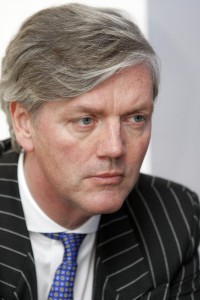Over the last several years the Saab story has taken more twists and turns than a Sam Spade detective novel, and the maker has added yet another chapter with news it has agreed to sell majority control to the Chinese.
The latest turn of events brings Zhejiang Youngman Lotus Automobile Co. into the picture, the manufacturer signing a memorandum of understanding, or MOU, that could give it a 29.9% stake in Swedish Saab. It would now partner with Pang Da, a Chinese automotive distributor that, last month, agreed to purchase a 24% stake in cash-starved Saab.
Together, the two companies would pump $352 million into the struggling Swedish firm, which has had its headquarters factory shut down for much of the last three months due to a boycott by unpaid suppliers. But the proposed deal isn’t yet a certainty.
An earlier rescue effort was aborted when the Chinese government failed to give its approval. The new alliance will need to win the go-ahead from not only the Chinese, but also Swedish regulators, the European Investment Bank – which funded the 2010 purchase of Saab – and General Motors, the company’s former parent.
On the positive side, said Saab Chairman Victor Muller, the proposed partnership “is a step that significantly strengthens Saab’s financial position and would secure the mid and long term financing of Saab Automobile.”
It would not only provide cash for a company that has largely drained its bank account, but also give Saab a new outlet in what has become the world’s largest automotive market. Pang Da operates a chain of 1,100 dealerships across the country. The addition of Zhejiang Youngman to the deal now would give Saab the ability to produce cars in China, rather than importing them.
By eliminating hefty duties, the maker is betting that would significantly expand the appeal of products like the new 9-4X crossover and 9-5 sedan. But Muller has also suggested Saab is studying the possibility of designing products specifically for the Chinese market, such as a full-sized luxury SUV.
“We feel that Saab as a premium European brand appeals strongly to the taste and preferences of the Chinese customer who is looking for top quality vehicles with the highest levels of safety, driving pleasure and comfort and an unmistakable design language,” said Pang Qingnian, CEO of Youngman, adding that, “Our manufacturing facilities are state of the art and are exactly tailored to build Saab vehicles at the highest quality standards. We look forward to a long lasting and successful relationship with Saab Automobile and Pang Da both in China as well globally through our investment in Saab.”
Muller told the Swedish news agency TT that the approval process could take as much as three months. It is unclear if Saab will be able to come up with the cash before then to resume production at its factory in Trollhattan, Sweden which produces its 9-5 and 9-3 models. That plant has operated for barely a week since it was first hit by a supplier boycott on March 29.
That shutdown has further worsened Saab’s financial situation as carmakers earn their money the moment a vehicle rolls off the line and sets out for the showroom.
Saab’s problems, however, have been worsening for years – reaching the crisis point when a crumbling General Motors decided to either sell or close the brand just before the U.S. maker filed for bankruptcy, in 2009. Later that year, as the prospects for a sale seemed to dim, GM began winding down operations, ultimately dismissing Saab’s board and closing the Trollhattan plant.
Muller’s Dutch-based Spyker Cars succeeded in a last-minute bid, acquiring Saab in February 2010, but it took another seven weeks to restart the factory, and that delay resulted in the cash shortage that threatened to break Saab this year.
Under the new agreement, Youngman will pay 136 million Euros for its equity stake, while Pang Da will invest 109 million Euros – up from the 65 million it originally agreed to on May 16.
But, for the moment, at least, the Trollhattan plant remains shuttered.
“All pieces of the puzzle are not yet in place, but it looks good and the atmosphere is positive,” newspaper Dagens Industri quoted a source as saying on Monday.
Following the announcement of the latest deal, investors bid up shares in Saab’s Dutch-listed parent by 27.6%.

